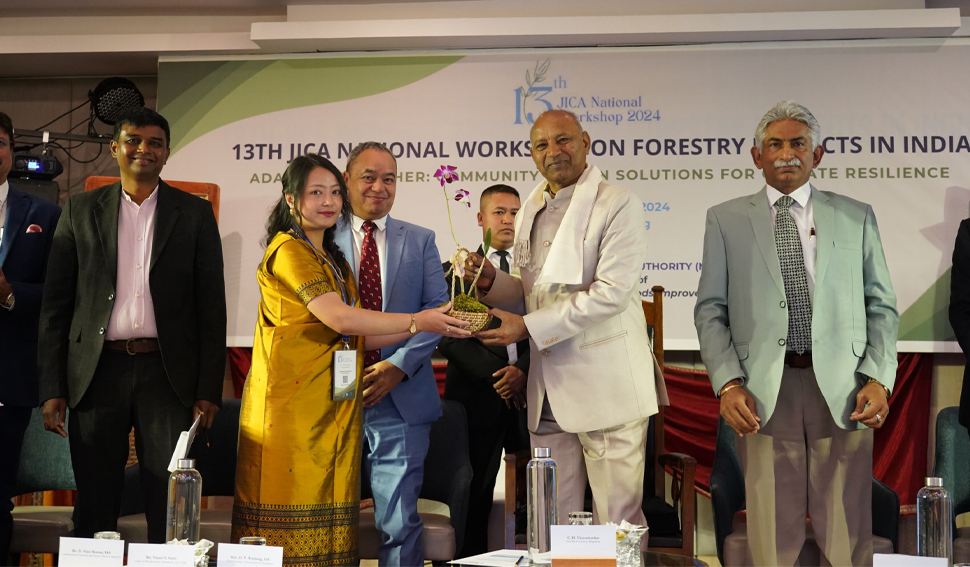13th National Conference on JICA assisted forestry projects in India underway in Shillong
The 13th National Conference on JICA-Assisted Forestry Projects in India is currently underway in Shillong, marking a significant annual event that brings together forestry experts, policymakers, and environmental advocates. Hosted by the Meghalaya Basin Development Authority (MBDA), the conference spans three days from November 13 to 15, focusing on innovative strategies for forest conservation, climate resilience, and community engagement. Delegates from 12 Indian states, as well as international guests from the Kenya Forest Institute and JICA Headquarters in Japan, are participating in discussions aimed at advancing sustainable forestry practices.
The event was inaugurated by the Governor of Meghalaya, C.H. Vijayashankar, who underscored the urgent need to protect indigenous flora, tackle climate change, and bolster community-driven forest management. In his keynote address, the Governor highlighted four priorities: addressing monoculture practices, promoting indigenous species in afforestation efforts, expanding tree plantations in non-forest areas, and focusing on traditional and medicinal plant species. His message set a constructive and impactful tone for the conference, reaffirming the state’s dedication to environmental conservation and sustainable development.
The inaugural session began with a welcome address by Dr. D. Vijay Kumar, IAS, Commissioner and Secretary, and Project Director of the MegLIFE project, who provided context on Meghalaya’s strategic initiatives in forest conservation under the MegLIFE project. Senior Representative of JICA, Eiji Wakamatsu, reaffirmed JICA’s commitment to strengthening environmental resilience, empowering communities, and providing ongoing support for sustainable forestry and natural resource management initiatives in India.
Chief Secretary of Meghalaya, D.P. Wahlang, IAS, further emphasized the importance of innovative approaches and community-driven efforts in sustainable forestry. The session concluded with a vote of thanks by Gunanka D.B., IFS, Additional Project Director of MegLIFE, followed by a group photo to commemorate the opening day.
The afternoon sessions delved into climate adaptation and transformative technology in forestry, focusing on innovative approaches such as springshed management, wetland conservation, and expanding agroforestry on private lands. Discussions highlighted the integration of natural resource management with carbon markets and humane methods for addressing human-wildlife conflicts in development-affected areas. The role of digital tools and artificial intelligence in enhancing forest management, disaster mitigation, and conservation efforts was also emphasized, showcasing technology’s potential to support climate resilience and sustainable forestry. These sessions set the stage for continued collaboration and knowledge-sharing in the days to come.



Leave a Reply